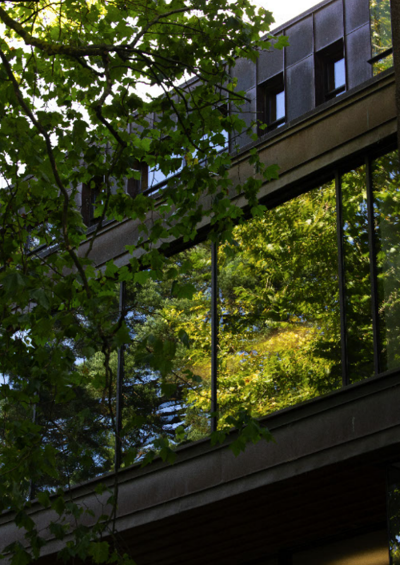Scope 3 webinar, 3 May 2024
101 people from more than 70 institutions joined the SCONUL Climate crisis and sustainability group to discuss SCOPE 3 emissions requirements for HE and the library community.
We heard from Rachel Dunk Principal Lecturer and Chris Paling Senior Lecturer from Manchester Metropolitan University. They talked through the development of the SCOPE 3 emissions targets though the Paris Agreement and nationally determined contributions. They emphasised the challenges inherent in the need to focus on 1.5 degrees and what that means practically, with our emissions needing to peak and then fall off radically in the next 5-10 years, reaching zero by around the middle of the century. They reviewed recent developments in UK Climate policy and the legal obligations arising from the Climate Change Act which requires us to reduce our emissions by 77% by 2035. They then discussed our institutions’ role in this: reducing our emissions ultimately to zero and also exerting influence to bring about the changes we all need to see. As a sector, HE is still trying to understand what a full and robust commitment to net zero looks like in practice. For example, there is a limit on the amount of carbon removal you can incorporate to deliver your target. Scope 1 and 2 are easy to calculate but Scope 3 is much more complex. Their presentation explored the SCOPE 3 standards covering upstream and downstream emissions, including 15 categories in all, and explored their implications for libraries including understanding the carbon footprint of the supply chain. This will require us to obtain primary data from suppliers.
Their presentation is available here.
The meeting also heard from Rowan Williamson Associate Director Library Services and Support from the University of Arts London who talked about her institution's approach to working towards net zero. A library with "a lot of stuff and a lot of buildings", UAL is a social purpose university with a target of net zero indirect emissions by 2040. She outlined the challenge: how do you drive change, particularly with Scope 3 emissions which are outside our direct control? The library has done a lot of work on engaging staff, including running expert workshops leading to local action plans, a community of practice; and a sustainability champion at each site. Climate justice is a dedicated strand in the staff development programme and the focus of the universities’ Social Purpose Lab. What emerged was a big research project which the library has piloted with other departments to identify where at strategic level they can make impact and plotting the move from experimentation to established practice. The library is now moving to look at its resources and systems working closely with their suppliers. Her presentation is available here.
We also were lucky to hear from India Divers, the Policy and Campaigns officer for the Museums Association (MA), who shared the experience from that sector of setting up a MA's Climate Justice Campaign, which supports museums to use their collections, programmes and exhibitions to explore climate change; to champion change and to be the change - embedding climate action across all decision-making and processes. The MA has produced a range of resources for their members: a climate resource bank; articles and case studies about best practice and regularly run events for members on each nation promoting the climate justice campaign. They provide access to support with climate audits, including climate calculators, and to use the audit as a tool to develop sustainability plans, highlighting areas and scope for change and achievable goals. Her presentation is available here.
The presentations were followed by a lively debate which covered topics including how best to approach calculating emissions and how we might verify the information provided by suppliers. A number of useful links were identified:
Resources
- Chat transcript: attendee comments and questions
- Rachel Dunk and Christopher Paling presentation
- Rowan Williamson presentation
- India Divers presentation
The SCONUL Climate crisis and sustainability group is keen to hear views from members about how SCONUL can work with and support the library community in the UK to make change, and would like to hear from you. Please do include your thoughts and ideas here.
